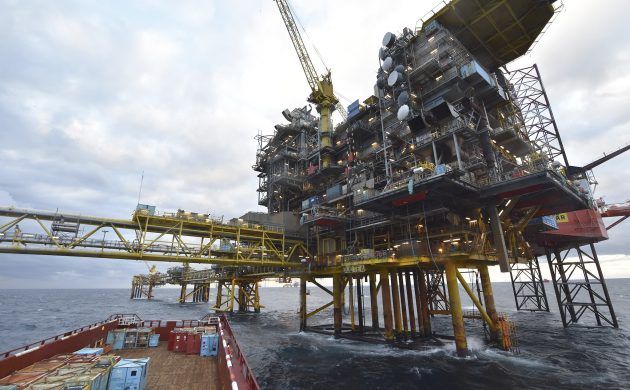Maersk is selling off its oil and gas assets to French energy company Total in a deal worth close to 50 billion kroner. Pending approval from the competition authority, the deal should be completed sometime in early 2018.
Norwegian media has voiced concerns Total will relocate workers from its office in Stavanger to Copenhagen, where it will oversee all its North Sea activities, according to the Maersk press release.
As part of the deal, Maersk will end up owning 3.76 percent of the French company, which will assume debt totalling almost 16 billion kroner.
Right time to sell?
the deal alleviates shareholder concerns over the continued fall in the price of oil, which has dogged Maersk’s results in recent years.
For some time now, the future viability of oil and gas deposits has been questioned, as it becomes increasingly harder to access supplies.
For example, Denmark has so far extracted 4 billion barrels of oil and gas from its North Sea fields, but most of the remaining 3 billion barrels lie 2 km beneath the seabed.
Hacked off
The Total deal, which was announced on August 21, followed a difficult summer for the shipping giant in which it suffered at the hands of hackers and the environmental authority.
At the end of June, the company experienced a cyberattack that hit vessels, as well as disabling computer systems in various Maersk-run ports around the world, forcing them to remain idle.
The company estimates it lost between 1.3 and 1.9 billion kroner as a result.
Discharge reprimand
Additionally, Maersk Oil was reported to the police by the environmental authority, Miljøstyrelsen, for breaching the maritime environmental law in connection with its North Sea oil production.
According to Miljøstyrelsen, Maersk Oil released so-called red chemicals into the North Sea. It is reported that it was 42 tonnes of the chemical scavtreat, which is used primarily to remove sulfides from oil and gas.
The chemicals used during oil drilling are listed via a kind of traffic-light system (green, yellow, red and black), in which the black chemicals are deemed the most hazardous to the environment.
African fund
In other news, Maersk has joined forces with three pension firms – PensionDanmark, PKA and Lægernes Pension – to establish a new infrastructure fund in Africa.
The four partners have already shelled out a total initial investment of about 3.5 billion kroner for the new fund, which has been given the title ‘Africa Infrastructure Fund I’ and will particularly focus on transport and energy.
The fund will open its doors to prospective investment partners from Denmark and abroad over the coming year, and it is expected to make 10-15 investments over the next decade or so.
















